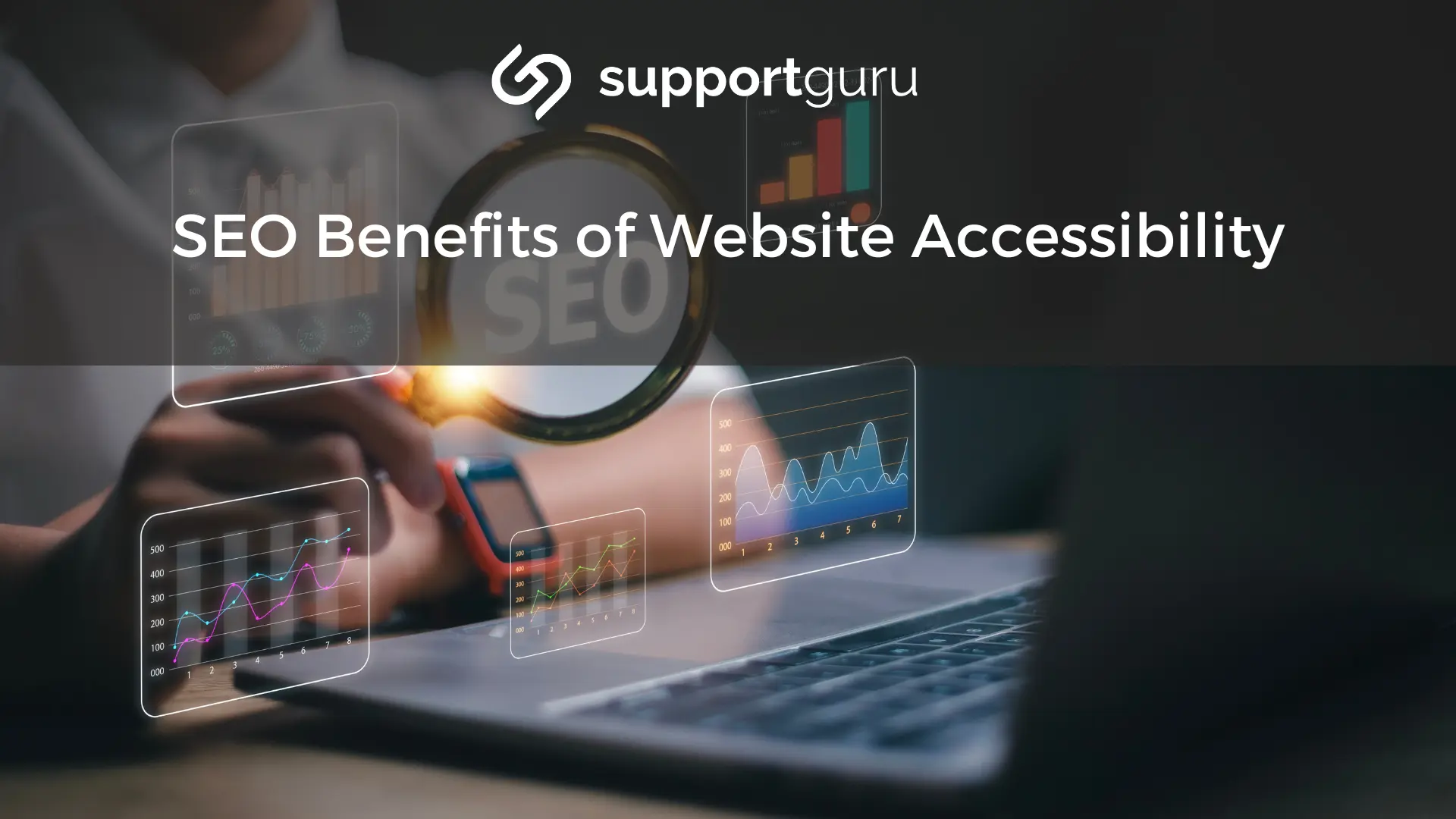There are SEO benefits that are often overlooked: Website accessibility.
Search engine optimization (SEO) plays a critical role in driving organic traffic and achieving online visibility.
Businesses invest significant resources in SEO strategies to improve their website ranking and reach a wider audience.
SEO Benefits of Website Accessibility
Beyond its ethical merits, website accessibility offers a range of SEO benefits that can enhance your online presence:
Accessible websites are inherently more user-friendly.
Features like clear navigation, proper use of alt text, and responsive design contribute to a smoother user experience, which is a positive ranking signal for search engines like Google.
Accessibility best practices often overlap with mobile web design principles. By making your website accessible, you're automatically making it more mobile-friendly, a critical factor for SEO in today's mobile-first world.
Accessible websites are easier for users to navigate and engage with, leading to longer dwell times. Search engines consider dwell time as a positive indicator of user satisfaction and content relevance, potentially boosting your website's ranking.
Aligning with accessibility standards opens your website to a broader audience who might rely on assistive technologies. This expanded reach can lead to more backlinks and social shares, which are important SEO ranking factors.
Optimizing for Accessibility and SEO
The good news is that many website accessibility practices directly benefit SEO.
-
Focus on Clear and Semantic Content: Write clear, concise content structured with proper headings and subheadings. This not only enhances readability for users but also helps search engines understand the content and context of your web pages.
-
Prioritize Image Optimization: Always include descriptive alt text for all images on your website. This helps visually impaired users understand the content of the image and also provides valuable information for search engine crawlers.
-
Mobile Responsiveness: A responsive website design that adapts seamlessly to different screen sizes is crucial for both accessibility and SEO.
-
Structured Data Markup: Implementing structured data markup can provide search engines with richer information about your website content, potentially improving search result snippets and click-through rates.
Local SEO Benefits
Businesses with a local presence and website accessibility can offer additional SEO advantages. Local search algorithms often consider factors like website usability and mobile-friendliness, both of which are aligned with accessibility best practices.
An accessible website can improve local search rankings and drive more qualified leads to your business.
SEO Advantages and Disadvantages
It's important to clarify that there are no direct SEO ranking factors solely based on accessibility compliance itself.
Search engines like Google prioritize a variety of signals to determine search ranking, and accessibility contributes significantly to a strong SEO foundation.
By creating a website that is accessible and user-friendly, you're laying the groundwork for a positive user experience, which is a confirmed SEO ranking factor.
Additionally, many accessibility best practices, like clear website structure and mobile-friendliness, directly align with SEO best practices.
